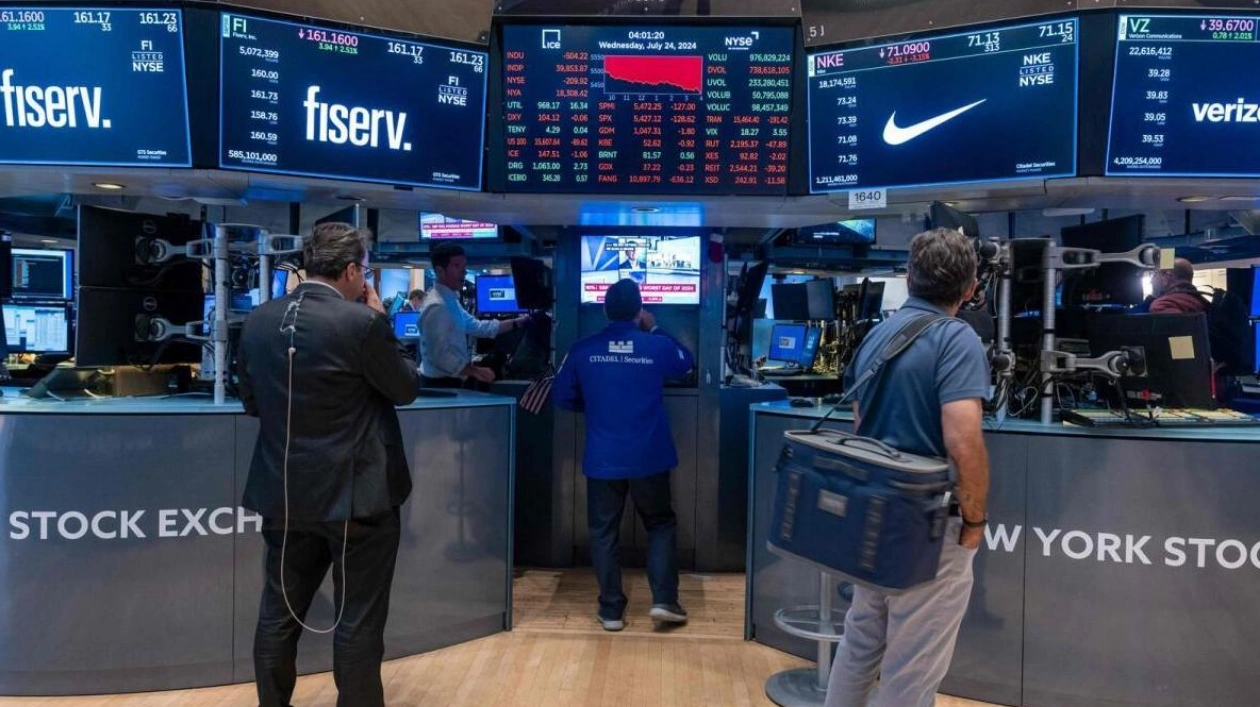Global firms are revising their full-year sales and profit forecasts downwards due to elevated interest rates and a sluggish Chinese economy, which are dampening global consumer confidence and overshadowing the earnings growth seen in the recent quarter. Several prominent companies, such as McDonald's, Nissan, Tesla, Nestle, and Diageo, have failed to impress investors. With approximately 40% of US and European firms having reported their financials, the earnings have met expectations, but this has been perceived as disappointing following a robust performance by global equity markets.
"This earnings season has been quite mixed," commented Brian Mulberry, a client portfolio manager at Zacks Investment Management. He noted the impact of prolonged high interest rates on companies' ability to sustain earnings and revenue growth. This week, major tech players like Apple, Microsoft, Samsung Electronics, Toyota Motor, Exxon Mobil, Shell, L'Oreal, and Adidas are set to provide a significant update. Companies are focusing on two main challenges affecting their profitability: the impact of higher interest rates on consumer spending and the economic slowdown in China.
McDonald's experienced its first global sales decline in 13 quarters, attributing it to the weak Chinese economy. Other firms like Unilever, Visa, and Aston Martin also highlighted China's economic struggles, and analysts predict that demand in China will remain subdued due to ongoing property market issues and job insecurity. "The Chinese are hesitant to spend because they are uncertain about the future," explained Stefan-Guenter Bauknecht, a portfolio manager at DWS. He believes that until China's growth improves, it will remain the weakest among the major regions.
Earnings per share in the US have increased by nearly 12% from a year ago, marking the strongest quarter in the last 10, according to LSEG data. In Europe, earnings rose by 4%, slightly ahead of expectations, marking the first positive growth since 2022. Consumer sentiment has weakened across various sectors, leading to increased guidance cuts. US companies have adjusted their third-quarter growth forecasts downwards from 8.6% at the start of July to 7.3% currently, as per LSEG data.
Despite overall decent second-quarter results, the market has been unnerved by signs of consumer distress, according to Bank of America analysts. Nestle and Unilever both reported first-half sales below expectations. Companies in the eurozone's largest economies are becoming increasingly pessimistic, raising concerns about the region's slow economic recovery. "Consumers are exhibiting value-seeking behavior, and there is significant pressure, particularly among low-income groups," stated Nestle CEO Mark Schneider during a media call.
Automakers are facing challenges in the US, where high inventories and logistics issues have affected the profitability of Ford Motor, Stellantis, and Nissan. Tesla's earnings also disappointed investors, and many consider the company overvalued as electric vehicle sales slow down. LG Energy Solution, a major EV battery supplier, anticipates a revenue drop of over 20% this year due to a sharper-than-expected decline in global EV demand. Its competitor, CATL in China, reported a 13% decrease in second-quarter revenue.
However, not all earnings news has been negative. Alphabet's growth in cloud computing revenue is promising for other tech giants. 3M's results boosted its shares to near a two-year high, while General Motors, Johnson & Johnson, and JP Morgan reported strong earnings. Asian chipmakers are more optimistic about demand, benefiting from the global AI boom, which has offset the slowdown in electronics demand driven by the pandemic.
"AI is currently very popular; all my customers want to integrate AI features into their devices," said TSMC Chairman and CEO C.C. Wei at an earnings conference. TSMC's shares have risen by 56% so far in 2024. Despite positive forecasts, major Asian chipmakers and AI leader Nvidia are facing pressure to meet high investor expectations. The MSCI International index has gained 11% this year, peaking earlier this month before a slight decline, partly due to expectations of interest rate cuts by the US Federal Reserve.
"As long as lower rates in the future remain a popular view, analysts are unlikely to reduce overall earnings projections for next year," noted Rick Meckler, a partner at Cherry Lane Investments.






